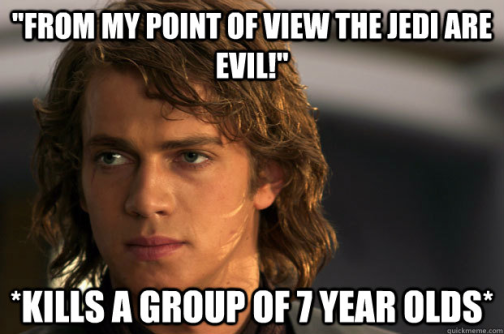Generating Page-Turning Momentum—Characters & The Wound

Hmmm, what’s the story behind THIS?
Can we answer the question, “What is your book about?” in one sentence. Is our answer clear and concise? Does it paint a vivid picture of something others would want to part with time and money to read? Plot is important, but a major component of a knockout log-line is casting the right characters.
Due to popular demand I am running my Your Story in a Sentence class in about two weeks and participants have their log lines shredded and rebuilt and made agent-ready. Log-lines are crucial because if we don’t know what our book is about? How are we going to finish it? Revise it? Pitch it? Sell it?
Once we have an idea of what our story is about and have set the stage for the dramatic events that will unfold, we must remember that fiction is about PROBLEMS. Plain and simple. Furthermore, it is about PEOPLE who have problems. But not simply ANY problems. Very specific problems, which we will talk about in a sec ;) .
I will say that plot is very important. Our characters are only as strong as the crucible. Ultimately, all stories are about people. We might not recall every detail of a plot, but we DO remember characters. Ah, but here’s the sticky wicket. WHY do we remember characters? Because of plot. Stories are more than about people. Great stories are people overcoming great odds.
We don’t remember Luke Skywalker because he hung out on Tatooine waxing rhapsodic about his plight as a moisture farmer. We remember him and his allies because they went up against seemingly unbeatable odds and WON.
Yet, even if we come up with the coolest plot in the world, there are elements of character that should also be in the mix, lest our novel can become the literary equivalent of a CGI Star Wars Prequel NIGHTMARE. Characters should develop organically or the reader will call FOUL.
Additionally, if our characters are as deep as an Amarillo puddle, it will be virtually impossible for readers to emotionally connect.
Among many other reasons, I think this is why the Star Wars Prequels were like a bad acid trip at Chuck E. Cheese. Anakin was utterly unlikable and unredeemable simply because the writers were more focused on how many characters they could make into McDonald’s Happy Meal toys instead of sticking to the fundamentals of GOOD storytelling.
But Obi-Wan doesn’t take me seriously. Whaaaaahhhhhh! *SLAP*
If we’re missing emotional connection between the audience and our characters, our story loses critical wattage. What are some ways we can help form that connection? Today…
The Wound
Real humans have wounds that drive our wants, needs, perceptions, and reactions and so should all our characters (even the Big Boss Troublemaker-Antagonist). Recently, I was helping a student of my Antag-Gold class plot her novel. She had a good protagonist who was a control freak. My question: WHY?
Yes, genetics will have a role in forging our personality, but genes do not a good story make. Having a character be a certain way simply because we need them to be or act that way will work, but so will a heart with damaged valves.
Wounds drive how we perceive our world, what we believe we want, and how we will (or won’t) interact with others. This is critical for generating story tension and character arc.
For instance, my father abandoned us, my mother was chronically ill, and my little brother was legally blind. I was left to grow up too fast and take care of far too much way too early. THIS is why I struggle with being a control freak. From MY wound, %#!* didn’t get done unless I did it.
Additionally, because I grew up in the wake of constant broken promises, I’ve had to work hard to trust. It’s been a challenge to delegate and allow others to fail or succeed without my constant meddling. Also in my growing up years, achievement=love/attention. That wound drove me to seek dreams that weren’t mine to please others.
I had to “arc” to walk away from people-pleasing if I wanted fulfillment.
Wounds are the NOTCH That Engages the GEAR
Think of plot like gears on a bicycle. So long as the gears are engaged and moving forward we have story momentum. Character is like the chain winding around those gears.
Some of you might be old enough to remember riding a ten-speed with the old shifters. You had to practice shifting gears to get the chain to engage a larger or smaller gear and if you didn’t get it right? The pedals spun and the bike just made weird noises. That’s because the chain has to be able to meet with the teeth of the gear via a space or a hole…or it won’t work.
Character functions similarly. We can have the gears (plot) and the chain (character) but if there is no notch (wound) that allows them to ever mesh and create tension? The story has no momentum and just makes weird sounds while we fruitlessly spin literary pedals. Wounds are the sweet spot, that hole, that allows plot and character to merge into dramatic momentum.
Some writers start with characters and others start with plot. It doesn’t matter so long as you let either be forged with “the wound” in mind. If you have a mental snippet of a rebellious renegade bad@$$ heroine and want to put her in a story, then think of a plot situation that will make her utterly miserable. She can’t grow if she’s comfortable.
Maybe instead of chasing bad guys, she is forced to become the caretaker for her three young nephews after her sister dies. This PLOT is going to force her to be vulnerable, maybe have a softer side, and lighten up. Now, character (chain) and plot (gears) are linked.
Same if we go the opposite direction.
Maybe you have a great idea for a story. You want to take down a mob boss. Who can you cast that will be the most uncomfortable and thus grow the most? A former hit man who’s given up killing because he promised his wife before she died? An agoraphobic ex-cop who can’t leave her house? A sweet, naive soccer mom who believes that Bedazzling makes everything way more AWESOME?
Genre will dictate some of the casting, but note if we cast someone who would reach our story goal with relative ease, we risk having a one-dimensional talking head. We also diminish tension because remember, readers LOVE seemingly unbeatable odds. So, if we cast a highly decorated detective to take down our mob boss, make sure there is something about him (a wound) that puts the odds against him.
Wounds Don’t Have to Be Big to Be BIG

Image via Flickr Creative Commons, courtesy of Thomas Ricker.
Often, new writers will default to wounds like rape or death or some big tragedy to create the wound. To be clear, I am not saying these aren’t viable wounds, but never underestimate the “smaller” and more relatable emotional injuries. The more a reader can empathize with one or more characters, the deeper that connection becomes.
Not everyone has lost their family to a sudden alien invasion— ;) — but they can empathize with maybe never living up to expectations, being bullied, or not fitting in. LOTR rests on a small band of Hobbits who believe they are too little to make a BIG difference.
Perhaps the character is the invisible middle child trying to forge an identity, the eldest trying to hold the world together, or the baby who “got away with murder” and “was handed everything.” Never underestimate family dynamics as sources for realistic and powerful psychic wounds.
For instance, my father was all play no work. Unfortunately, we suffered the consequences. Ironically, my grandfather was all work no play. Doubly ironic, my childlike father created a workaholic daughter (me); like thread, one loop feeding into the next weaving the “pattern” until someone changes “the pattern.”
Arc.
I’ve had to learn to lighten the hell up and balance The Force. But my workaholic, overachieving nature served up far more thorns than fruits.
Wounds Will Distort Happiness
Wounds generate illusions. Because I grew up poor and lived hand-to-mouth all through college, I “believed” that money and financial security would make me happy. At 27, I made more money than any person in their 20s should make…and I was miserable. I was eaten alive with emptiness. I’d achieved all that should have filled that hole—the college degree, the premium job and premium pay. And yet?
I was the person stranded in a desert gulping sand I believed was water from an oasis.

Am I “there” yet?
Character arc comes when a protagonist is placed in a problem strong enough to challenge the illusion and break it. The protagonist believes X=happiness/fulfillment. It is only through the story problem that the protagonist rises to become a hero, a person capable of realizing they were wrong and that they’d been coveting a shill at the expense of the gold.
Thus, when creating characters, keep the wound at the forefront of your mind.
How does it affect what he/she believes about their own identity? What do they believe will make them happy? What is it that you (Author God) know that’s really what will make them happy? What needs to change for that character to lose the blinders? What is the perfect problem (plot) to force the protagonist to see the hard truth of the unhealed wound?
What are your thoughts? Writing can be healing and therapeutic. Have you ever siphoned from your own hurt-reservoir to deepen your characters? Can you think of how even small hurts can become super-sized? What are some ways you’ve witnessed wounds driving people in wrong directions toward false happiness? Have you been there, done that and earned the t-shirt?
I LOVE hearing from you!
To prove it and show my love, for the month of JULY, everyone who leaves a comment I will put your name in a hat. If you comment and link back to my blog on your blog, you get your name in the hat twice. What do you win? The unvarnished truth from yours truly. I will pick a winner once a month and it will be a critique of the first 20 pages of your novel, or your query letter, or your synopsis (5 pages or less).
For those who need help building a platform and keeping it SIMPLE, pick up a copy of my latest social media/branding book Rise of the Machines—Human Authors in a Digital World on AMAZON, iBooks, or Nook.






